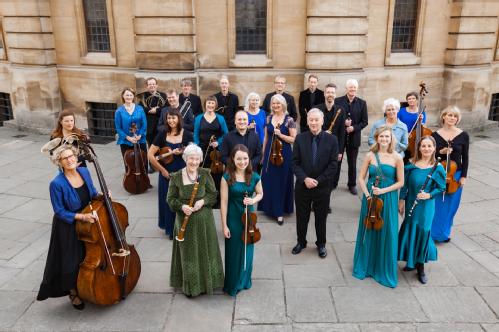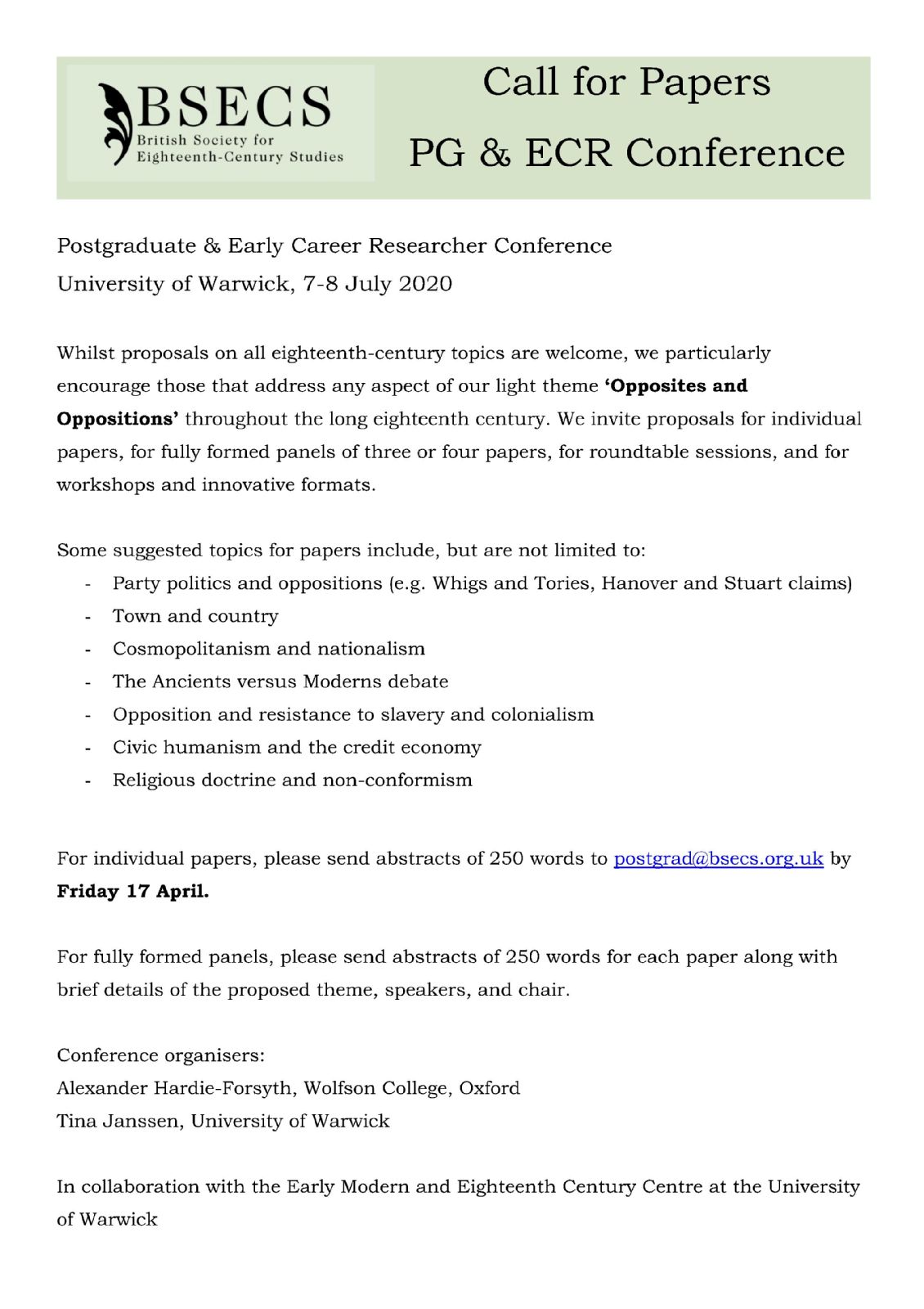News
Musical Culture and Empire in Eighteenth-Century Britain: a digital concert series
This digital concert series is a University of Warwick Global History and Culture Centre and Early Modern and Eighteenth-Century Centre collaboration with the Oxford-based baroque orchestra, Instruments of Time and Truth.
We will record a programme of high-quality solo performances with short introductory talks to be premiered ‘live’ on social media to enable engagement between performers and audiences in a recognisably concert-like setting. If COVID-19 conditions allow, we will also record a chamber group concert in an eighteenth-century setting to be streamed in the same way. This ‘live’ premier will be a way of approximating a sense of a community coming together to experience music with one another. The concerts will also be recorded for return experiences on the Warwick, IT&T and other music websites. The concerts address the situation of classical musicians during Covid-19, and innovative practices in digital performance. The concert series theme connects eighteenth-century London as a European cultural centre to the city as a centre of empire. A culturally-diverse musical society included composers and performers, audiences and benefactors from Europe and the Atlantic world. ‘Musical Culture and Empire’ brings musical culture to our histories, and the digital concert series supports our musical cultural sector.
Instruments of Time and Truth, described on BBC Record Review as 'an absolutely superb band of instrumental soloists', was founded in 2014 by musicians Gabriel Amherst and Judith Evans to provide a platform for international performers resident in and around Oxford. Established on a community-driven model, the ensemble has both put on a series of innovative explorations of Baroque repertoire, and assumed a significant role in underpinning the tradition of collegiate and community choral excellence in Oxford. IT&T has also performed further afield, putting on performances of Handel’s little-known oratorio “The Triumph of Time and Truth” in London and Tetbury, as well as giving regular concerts in Spain and Malta. In 2019 IT&T's ground-breaking 'InSpires' education project, with its extensive programme of courses, coaching, and individual tuition, was awarded the OMEP Music Partnership Cup at the Music Hub Gala Awards.

The IT&T orchestra in front of the Sheldonian in Oxford.
Funded by the Humanities Research Fund in collaboration with the Connecting Cultures GRP
BSECS - Call for papers PG & ECR Conference - Postponed until July 2021

CfP from Warwick humanities researchers: How Can You Tell? Judgment in Early Modern Europe, deadline 10 Sept 2019
How Can You Tell? Judgment in Early Modern Europe
We don't like to stand in judgment, and we don't want to be judged, but we live in a world of ratings, assessments and evaluations. Judgment is an elusive topic in the humanities because it falls between the cracks of periods and disciplines. This workshop will address this problem by bringing together scholars from a range of disciplines to study judgment in early modern Europe.
We are seeking contributions from humanities researchers at Warwick for this workshop, which will be held on March 6, 2020. The event is part of the annual series of workshops run by the Early Modern and Eighteenth-Century Centre. We are seeking two sorts of paper: surveys of the concept of judgment, or of related concepts such as connoisseurship, discernment, and discrimination; and case studies exploring the techniques that people used to make judgements in their daily lives.
Like early modern people, we interpret judgment broadly to include any attempt to determine the quality or authenticity of something, whether an idea, an object, a text, an act or a person. Judgments may be legal, social, political, scientific, commercial, aesthetic, culinary, sartorial, scholarly, and more. The period covered is the early modern and eighteenth century, roughly from the Reformation to the French Revolution. The geographical scope is Europe, European Empires, and their global connections.
To submit a paper, please send a 200-word abstract to m.bycroft@warwick.ac.uk by Sep 10, 2019.
EMECC welcomes new staff members
We are delighted to be joined by EMECC's first Research Fellow, Dr Callie Wilkinson, who will work on her Leverhulme-funded project, and by Dr Naomi Pullin, who returns to the Department from Cambridge as Assistant Professor with her Leverhulme-funded research project. Further details of their projects will follow on our Research page.
David Taylor leaves Warwick
We are very sorry to lose Dr David Taylor (English), who has been an enthusiastic and supportive member of the Centre for several years. He is moving on to a new job as Associate Professor of Eighteenth Century literature at the University of Oxford, and tutorial fellow at St Hugh's College. We wish him every success!
